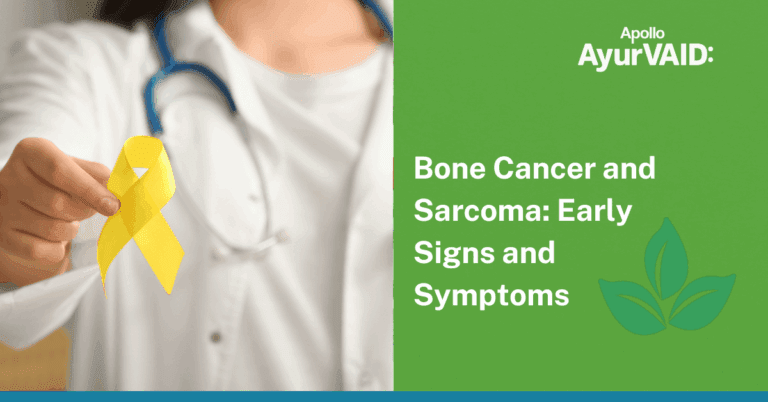
Introduction
Knee arthritis, also known as degenerative joint disease or Osteoarthritis, is a common condition that affects millions of people worldwide. It is a progressive condition that can cause significant pain and stiffness in the knee joint, making it difficult to perform daily activities. This condition is called Janu Sandhivata in Ayurveda, wherein the morbid Vata dosha inflicts the knee joints causing Osteoarthritis of the Knee. In this blog post, we will explore some of the risk factors, common symptoms of knee arthritis, and how Ayurvedic treatments can help manage this condition.
Common Symptoms of Osteoarthritis of the Knee
Pain is one of the most common symptoms of knee arthritis that ranges from mild to severe over time. In some cases, it can also lead to the development of bone spurs. Bone Spurs are small bony growths that can form around the joint, causing further pain and discomfort.
Listed below are a few common clinical symptoms:
- Knee pain gradually worsens with activity
- Knee stiffness and swelling
- Pain after prolonged sitting or resting
- Crepitus or a cracking sound with joint movement
- Knee might lock up or feel stuck

Reasons Leading to Osteoarthritis of the Knee
There are can various reasons for the development of Knee Arthritis. Let us take a look.
- Joint Injury: Injury or overuse such as knee bending and repetitive stress on a joint, can damage a joint and increase the risk of Osteoarthritis of the knee in that joint.
- Age: The risk of developing knee arthritis increases with age.
- Gender: Women are more likely to develop the condition than men, especially after age 50.
- Obesity: Extra weight puts more stress on joints, particularly weight-bearing joints like the hips and knees. This stress increases the risk of Osteoarthritis in that joint. Obesity may also have metabolic effects that increase the risk of knee arthritis.
- Genetics: People who have family members with the condition are more likely to develop it. People who have hand Osteoarthritis are more likely to develop knee Osteoarthritis.
- Race: Some Asian populations have a lower risk for Osteoarthritis of the Knee.
Ayurvedic Treatment for Osteoarthritis of the Knee
Ayurveda offers a holistic approach to managing knee arthritis symptoms. It aims at treating the alleviated Vata dosha, preventing the progression of the disease, and aiding in the lubrication and rejuvenation of joints. Detoxification and rejuvenation procedures to remove the morbid vata dosha and for strengthing the joints are done through Vasti, Abhyanga, Janu Pichu, Janu Vasti, Upanaha, Lepam etc. Also, medications to alleviate pain and improve the flexibility of the joints are given. In addition, diet and lifestyle guidelines to combat the morbid vata dosha and strengthening of the joints are done.
Conclusion
In conclusion, knee arthritis can cause significant pain and discomfort, making it difficult to perform everyday activities. However, Ayurvedic treatments can help manage this condition and reduce symptoms. If you are struggling with knee arthritis, consider seeking treatment from AvurVaid Hospitals for personalized, holistic care that focuses on the root cause of your symptoms.






